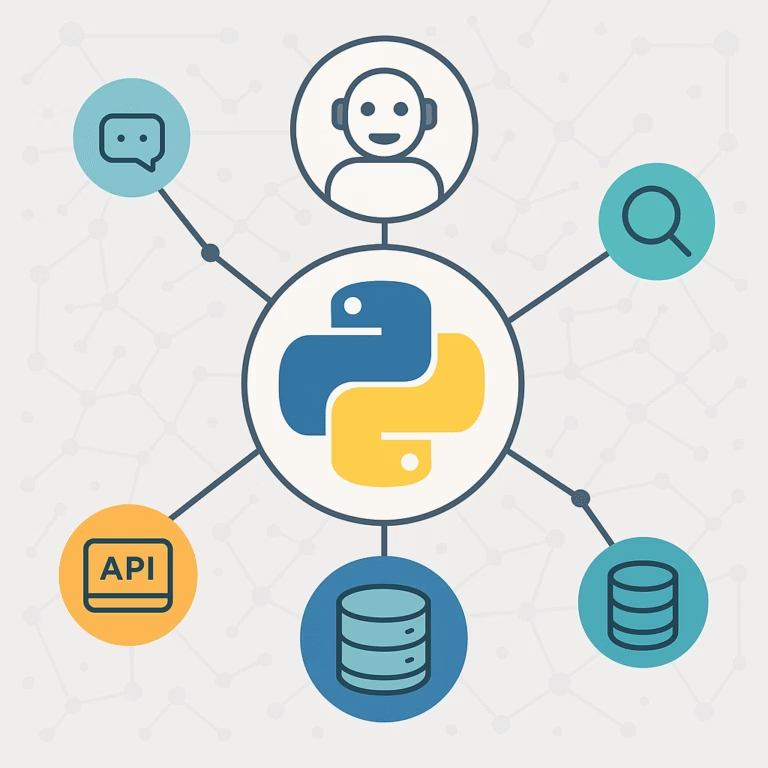Everything You Need to Know About Agentic AI in 2025
Artificial Intelligence (AI) has already changed how we work, communicate, and solve problems. However, in 2025, a new shift is underway—Agentic AI. Unlike earlier AI tools that simply respond to instructions, Agentic AI is designed to think ahead, plan, and act with minimal supervision. This evolution is pushing AI beyond being a “smart assistant” into becoming a true collaborator.
In this blog, I’ll explain what Agentic AI is, how it works, real-world examples, its benefits, challenges, and future. I’ll also share why it matters and how we can prepare for this shift.
- Introduction: Why Everyone’s Talking About Agentic AI
- What is Agentic AI?
- How Does Agentic AI Work?
- What Are the Real-World Applications of Agentic AI?
- What Are the Benefits of Agentic AI?
- What Challenges and Risks Does Agentic AI Pose?
- How Does Agentic AI Compare to Traditional AI?
- What Does the Future of Agentic AI Look Like?
- Conclusion: My Take
Introduction: Why Everyone’s Talking About Agentic AI
In recent years, we’ve gotten used to AI chatbots, code generators, and content creators. They’re useful—but only when we tell them what to do. So, what if AI could take a broader instruction, plan the steps, and execute them without constant back-and-forth?
That’s where Agentic AI comes in. Think of it as moving from a calculator to a smart intern who understands your goals, organizes the work, and delivers results. Therefore, this proactive nature is what makes Agentic AI a breakthrough.
What is Agentic AI?
How can we define Agentic AI?
In simple terms, Agentic AI refers to systems that act like agents—autonomous entities that:
- Make decisions without constant input.
- Pursue goals instead of waiting for instructions.
- Adapt on the fly when conditions change.
- Plan and execute multi-step tasks logically.
How is it different from traditional AI?
For example, instead of just showing you flight options, an Agentic AI could book your ticket, find a hotel, and rearrange bookings if your meeting gets delayed. Thus, it doesn’t just respond—it acts.
How Does Agentic AI Work?
Agentic AI relies on several key components:
- Large Language Models (LLMs) for reasoning and communication.
- Planning algorithms to break down complex goals into smaller steps.
- Memory systems to recall past interactions and apply context.
- Feedback loops that help it improve over time.
- Integration tools (APIs) so it can take actions like sending emails or managing calendars.
This blend is what makes Agentic AI exciting—it’s not just about generating text but about taking meaningful action. Moreover, its ability to integrate into real workflows sets it apart.
What Are the Real-World Applications of Agentic AI?
Agentic AI is not science fiction. On the contrary, it’s already being tested in multiple industries:
1. Business & Workflows
- Digital project managers that track tasks and deadlines.
- Sales research agents that find prospects and draft emails.
- Market analysts that scan reports and create insights.
2. Healthcare
- Patient monitoring agents that alert doctors during emergencies.
- Systems that suggest treatment options based on history.
- Workflow managers that optimize hospital resources.
3. Education
- Personalized tutors that adapt to each student’s pace.
- AI that suggests courses or career paths based on skills.
- Automated grading and curriculum adjustments.
4. Finance
- Trading bots that adapt to live market changes.
- AI advisors that suggest savings and investment strategies.
- Fraud detection systems that work in real time.
5. Everyday Life
- Assistants that reschedule conflicting tasks.
- AI that manages home energy use.
- Travel planners that adjust itineraries when plans change.
Consequently, these examples show how Agentic AI moves from “helping” to actually “handling” tasks.
What Are the Benefits of Agentic AI?
Here’s why people are excited about it:
- Boosted productivity – It handles routine and complex workflows.
- Scalability – One agent can replace hours of human work.
- Personalization – It learns and adapts to your needs.
- Reduced mental load – You can focus on strategy and creativity.
- Adaptability – It adjusts better to unexpected changes than static systems.
From my experience with AI tools, the biggest relief is less context switching. Instead of juggling 10 tasks, I can offload half to an AI agent and focus on more valuable work. Furthermore, this creates room for innovation.
What Challenges and Risks Does Agentic AI Pose?
Still, we can’t ignore the risks:
- Safety & alignment – How do we ensure AI follows human values?
- Over-automation – Too much reliance might lead to unchecked errors.
- Accountability – If it makes a mistake, who’s responsible?
- Bias – AI can inherit biases from training data.
- Security threats – Deeper integration makes it a bigger hacking target.
Therefore, these concerns remind me that while Agentic AI is powerful, it’s not something we can “set and forget.” Oversight remains essential.
How Does Agentic AI Compare to Traditional AI?
| Aspect | Traditional AI | Agentic AI |
|---|---|---|
| Role | Reactive tool | Proactive collaborator |
| Tasks | Narrow and predefined | Multi-step and goal-oriented |
| Decision-making | Minimal | Autonomous |
| Adaptability | Limited | Context-aware and dynamic |
| Example | Sets a reminder | Plans and manages your schedule |
As a result, it’s clear why Agentic AI represents a transformation rather than just an upgrade.
What Does the Future of Agentic AI Look Like?
Looking ahead, by 2030, we may be working alongside AI “digital coworkers.” Imagine logging in and finding that your AI teammate has already compiled reports, drafted emails, and flagged risks. Likewise, in healthcare, monitoring agents might prevent emergencies. In education, adaptive tutors could change how classrooms work entirely.
But for this future to succeed, we need rules. Thus, governments and industries must define boundaries, set ethical standards, and ensure transparency. Without trust, adoption will stall.
Conclusion: My Take
In conclusion, Agentic AI feels like the natural next step in AI’s journey. Early AI tools acted like calculators, but Agentic AI is shaping up to be more like a junior colleague—capable of planning, adapting, and learning.
I see great potential in freeing humans from repetitive tasks so we can focus on creative and strategic work. However, I also believe we need caution—building systems that are safe, ethical, and transparent.
Ultimately, the real question isn’t whether Agentic AI will transform our lives—it’s how ready we are to collaborate with it.


One Comment